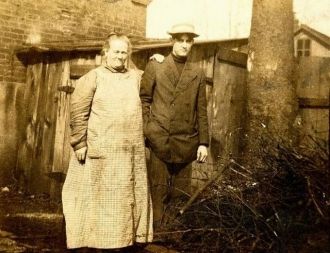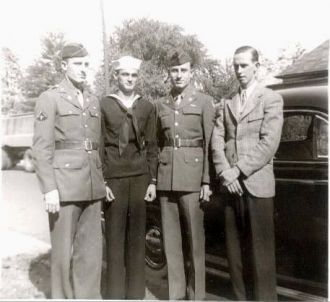Ormsby Family History & Genealogy
Ormsby Last Name History & Origin
AddHistory
We don't have any information on the history of the Ormsby name. Have information to share?
Name Origin
We don't have any information on the origins of the Ormsby name. Have information to share?
Spellings & Pronunciations
We don't have any alternate spellings or pronunciation information on the Ormsby name. Have information to share?
Nationality & Ethnicity
We don't have any information on the nationality / ethnicity of the Ormsby name. Have information to share?
Famous People named Ormsby
Are there famous people from the Ormsby family? Share their story.
Early Ormsbies
These are the earliest records we have of the Ormsby family.
Ormsby Family Photos
Discover Ormsby family photos shared by the community. These photos contain people and places related to the Ormsby last name.
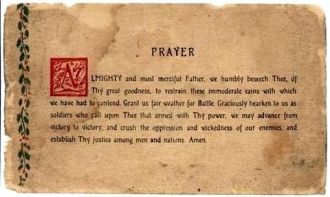
Almighty and most merciful Father, we humbly beseech Thee, of Thy great goodness, to restrain these immoderate rains with which we have had to contend. Grant us fair weather for Battle. Graciously hearken to us as soldiers who call upon Thy power, we may advance from victory, and crush the oppression and wickedness of our enemies and establish Thy justice among men and nations. Amen.

HEADQUATERS THIRD UNITED STATES ARMY
To each officer and soldier in the Third United States Army, I wish a Merry Christmas. I have full confidence in your courage, devotion to duty, and skill in ballet. We march in our might to complete victory. May God's blessing rest upon each of you on this Christmas Day.
G. S. Patton
Lieutenant General,
Commanding, Third United States Army
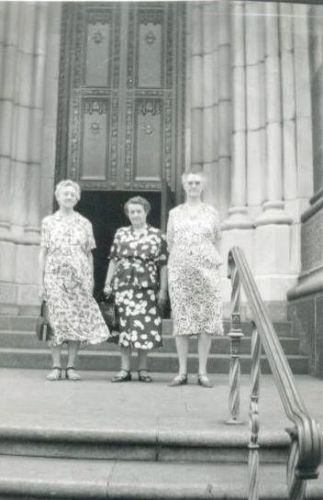
People in photo include: Loretta K Ormsby, Katherine B Ormsby, and Bridget E Ormsby
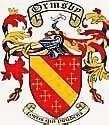
The history behind our crest:
Sir William de Ormesby ~ Gules a bend between six cross crosslets fitchy Or. Together with Hugh de Cressingham's appointment as Chamberlain of Scotland, Edward I made Sir William de Ormesby the Justiciar. Scotland was in revolt during his term of office, so there was little he could achieve in the establishment of law and order. His family estates were in Lincolnshire and today it is based in Ireland.

People in photo include: Ruth L Ormsby

People in photo include: John C Ormsby, Charlene M Ormsby, Christopher L Ormsby, Jennifer M Ormsby, Jean A Ormsby, Carol A Ormsby, and Joshua M Ormsby
Ormsby Family Tree
Discover the most common names, oldest records and life expectancy of people with the last name Ormsby.
Updated Ormsby Biographies
Popular Ormsby Biographies
Ormsby Death Records & Life Expectancy
The average age of a Ormsby family member is 74.0 years old according to our database of 1,439 people with the last name Ormsby that have a birth and death date listed.
Life Expectancy
Oldest Ormsbies
These are the longest-lived members of the Ormsby family on AncientFaces.
Other Ormsby Records
Share memories about your Ormsby family
Leave comments and ask questions related to the Ormsby family.
The following was taken from the London, England Genealogist. An issue prior to 1905. The surname has appeared with the following spellings:
Ormesby
Ormsby
Ormsbee
An old tradition, dating back before the year 1050, says that the first original ancestor of Ormesby-Ormsby-Ormsbee was Orm, so called because he came from a Place of Elms (Etymology Dictionary by William Arthur, M.D.). Orm was the old Scandinavian word for Elm or Elm Tree, or Elm Trees. Bey, By, Bye were places, any places where people resided.
The original Orm lived in the Scandinavian Peninsula. He was a Lord. (Lord meant, not nobility but a person who owned or who controlled large tracts of land) Orm did. In that section, and during those times a rich man might have as many wives as his possessions might support. Orm had several and raised a large family of boys. As the boys grew to manhood, Orm followed the custom of those times and gave each of his male offspring a portion of the land he owned. When the youngest and last son reached manhood there was no more land, so this latest son required to seek and forge for himself.
He joined a Viking crew under the leadership of an old experienced Viking, who during about the middle of the eighth century plundered the coast of Scotland in one of those Long Ships of Rowing Galleries popular at that time among Vikings and Pirate Sea Kings.
On one of his excursions to Scotland, the Scots were better prepared and came out upon the sea to give battle. The Scots were getting the best of the fight when the old Viking called his crew together, together, asked them to fight harder, and promised to make that particular one the ruler of captured territory who should be the first to set foot on Scottish soil.
During the fight which ensued Young Orm had his leg severed just above the knee by the broad sword of the Scots. He tied it up. The Viking won, and as they neared the Scottish soil Young Orm suddenly arose, picked up his severed leg and threw it overboard onto the land and claimed the reward as being the first to put his foot on Scottish soil. He finally recovered from his wound and the Viking kept his word making Young Orm the ruler of the captured territory.
The termination bye meaning a place or settlement was added later, undoubtedly from the colony over which Orm was made ruler.
Many generations passed during which there was continual conflict between the Ormesbys and the King of England. The King's troops could not subdue the Ormesbys and the Ormesbys could not conquer England. At the time of the conflict with England which terminated in the complete subjection of Scotland, the Ormesbys had become a powerful clan and England offered a baronage to the then Ormesby leader if he would renounce his allegiance to Scotland and to his Clan and move himself and his personal family to Lincolnshire.
Ormesby did so renounce his Clan and Allegiance to Scotland and moved to Lincolnshire. Those who remained in Scotland fought until they could carry on the war no longer. A part of them submitted to English rule and remained in Scotland where the family still exists in large numbers. The greater part, however, refused to submit and emigrated to Ireland (northeast) where they are still a numerous people. Others moved to various sections, probably changing names according to the customs of the time.
The Ormesbys of Lincolnshire eventually became a massive family, and in the middle of the eleventh century, in a war with France, in which William the Conqueror played such an important part, the then, Baron Ormesby captured the daughter of a French Nobleman and held her for high ransom. The Baron's son, whose name was William, in defiance to his father's project fell in love with the supposedly beautiful girl; helped her to escape, and went with her back to the Northerly part of France known as Normandy. Here, because of his heroic act, he became a hero to the Norman people. William the Conqueror then took him into the army, and after the subjection of England in 1050 dispelled the leading Baron of the Ormesbys and in his place established Young William, giving him the title of William de Ormesby, Knight. Many of the Ormesbys, byes, bys, bees of today claim descent from this character, meaning, or should mean no doubt, to the clan of people whom he headed.
The story of Orm and the Viking expedition has come down from the time recording began, and is supposed to account for the tradition regarding the severed leg used in the Ormsby Coat-of-Arms. More of the story accounts for the way the historic William de Ormesby, Knight, of whom so many descendants are proud, come into being.
From: Colonial Families of America
Ormsby is a combination of the old Scandinavian personal (as distinguished from family) name "ORM" and the Danish word "BY" or "BYE" meaning "Town". Its original signification therefore, was "ORM'S Town" or possible estate. The Village of Ormsby in North Riding of Yorkshire, England is one surviving example of its original use as a place name. As a patronymic, Ormsby belongs to that large class derived from geographic locations.
William Elliot Ormsby wrote, in 1941, about Sir Richard de Ormesby:
The name of Ormsby is of Saxon origin and founded before the Norman Conquest. The name means, literally, "The dwelling of Orme." It was first spelled Ormesby meaning "By the Orme." It was taken by the man who lived there. That man was Sir Richard De Ormesby. He owned a large estate which he called Ormsby, leaving out the "e". That estate is now Ormsby Parish, in Lincolnshire, England. The castle he lived in was "The Orme". . . Sir Richard was established at "The Orme" in the early eleventh century. Because of his bravery, honest, and integrity, "William the Conqueror" allowed him to keep all his property and lands after the Conquest (1066) . . . They (various Ormsby spellings) all have Sir Richard as a common progenitor. (Provided by William Elliot Ormsby's great, great-grandfather, Heather Byrd).
Followers & Sources

